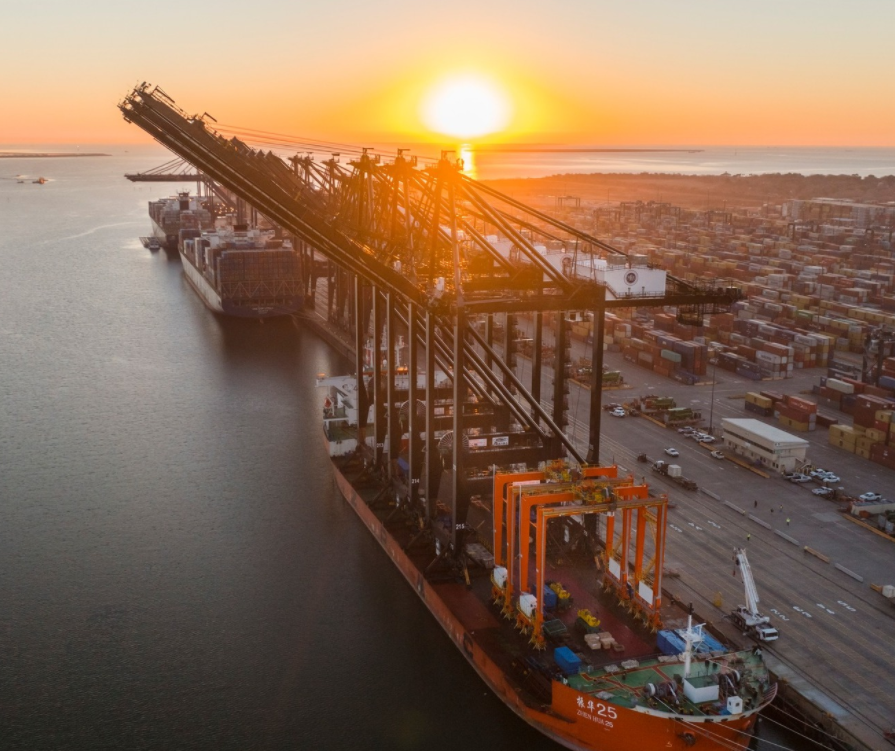Port Houston Volume Surge Continues; Agreement with Army Corps on Maintenance Dredging Reached

Photo courtesy of Port Houston.
The Port Commission of the Port of Houston Authority met on Tuesday, April 26, for its regular monthly meeting. Port Chairman Ric Campo opened the meeting by announcing multiple outstanding achievements for the Houston Ship Channel and by Port Houston.
One of the most notable was a recent agreement with the U.S. Army Corps of Engineers, permitting it to assume maintenance dredging for a soon-to-be improved segment of the nation’s busiest ship channel. Chairman Campo highlighted the importance of the agreement, in addition to the opportunity it may provide Port Houston to develop and direct additional investment towards landside infrastructure, to continue to stay in front of increasing cargo volumes.
As gate movements at Port Houston’s two public container terminals continue to break daily records, Chairman Campo commended the staff team, industry, the International Longshoremen’s Association, and seafarers, “who all continue performing an amazing job every day to drive the historical volumes of commerce through our region.”
In his staff report, Executive Director Roger Guenther said Port Houston container volume had increased 23% overall. “More than 900,000 container TEUs moved through the public facilities over the first three months of 2022, our largest quarter ever by far,” he said.
Guenther also commented on a Memorandum of Agreement with FSX, LLC, an agenda item later approved by the Port Commission. The agreement permits the parties to pursue and explore opportunities to connect shore-side container facilities to more inland locations via the proposed freight shuttle infrastructure. The MOA aims to help improve air quality emissions by reducing truck miles traveled, enhance intermodal connectivity, and improve the capacity of existing terminals.
Guenther said, “We continue to think out of the box and take a hard look at technologies like the freight shuttle that may provide tremendous benefit for more efficient freight transportation.” The MOA also highlights Port Houston’s sustainability efforts, including the goal to reduce its greenhouse gas footprint to net-zero by 2050.
